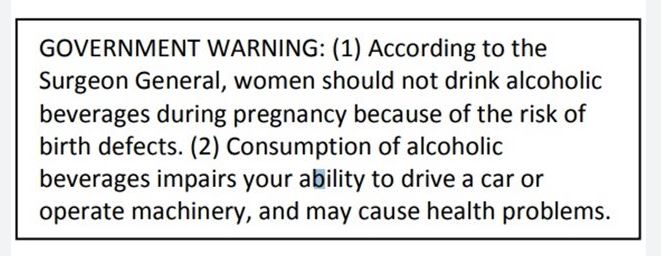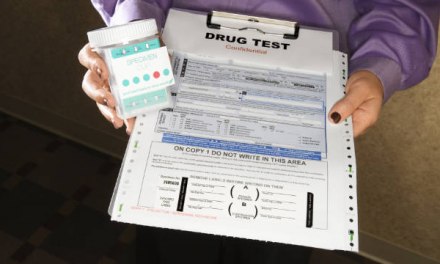This appeared first on the Yahoo website:
Right now, the 1989 labels used in the USA do caution pregnant women about birth defects, and everyone about impaired driving, machinery operation, and unspecified ‘health problems’. But that’s about it. And the science has been updated since that time. Should the labels reflect that?
For instance, research has established a clear link between alcohol consumption, especially the heavier sort, and cancer risk. So do we add that to the warning?
Some experts say don’t bother. They’re convinced that the labels have little or no impact on an individual’s behavior. Drinkers, they claim, will simply ignore it.
That may not be true. The article goes on cite several studies that suggest that when used properly, labels do help raise awareness and motivate decreased consumption. The writers describe one controlled study where appropriate labeling led to a decline in consumption of more than 6%, versus controls. It may not sound like much, but it almost certainly has a positive impact on risk.
We can also learn from experience with smoking. There, an updated approach that rotated warning messages on the package, focusing on specific health problems, seems to have been more impactful than the single universal warning.
Possibly because it warns men about erectile dysfunction, along with clogged arteries and certain cancers.
I couldn’t help thinking of the late Lee Silverman’s advice. When trying to get the attention of someone with a substance problem, it may well be necessary to “back the hearse up to the door and let them get a whiff of the flowers.”
Of course, we should expect significant opposition from the alcohol industry. “You’re taking money out of my pocket,” said one distributor.
We can learn from what happened in Ireland. From a World Cancer Foundation analysis:
“Ireland’s comprehensive alcohol laws have faced significant opposition within Ireland and internationally from the alcohol industry and some alcohol-exporting countries. The alcohol industry is using a range of strategies and activities to try to weaken, delay and defeat the laws. These have included being at the table when the legislation was being developed, lobbying, and mobilising coalitions to oppose specific measures, such as a ban on sports sponsorship.”
I’d add the threat of costly litigation to the list. After all, there’s a lot of money involved, and industry will want to hold tight to it.












